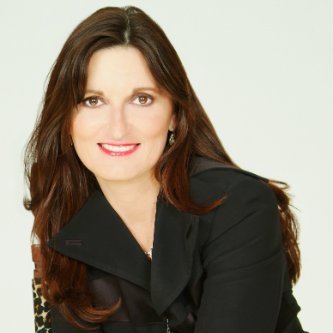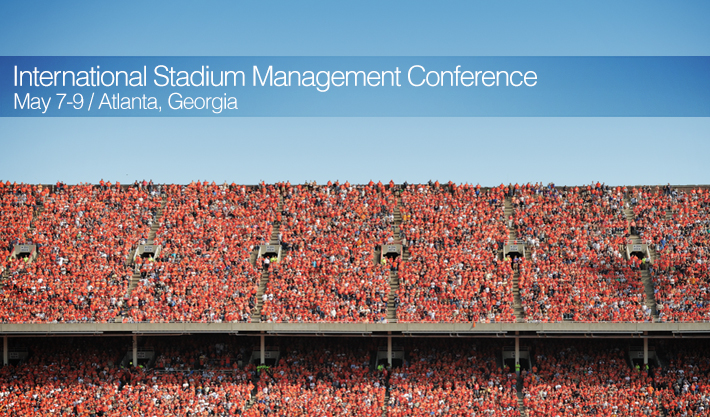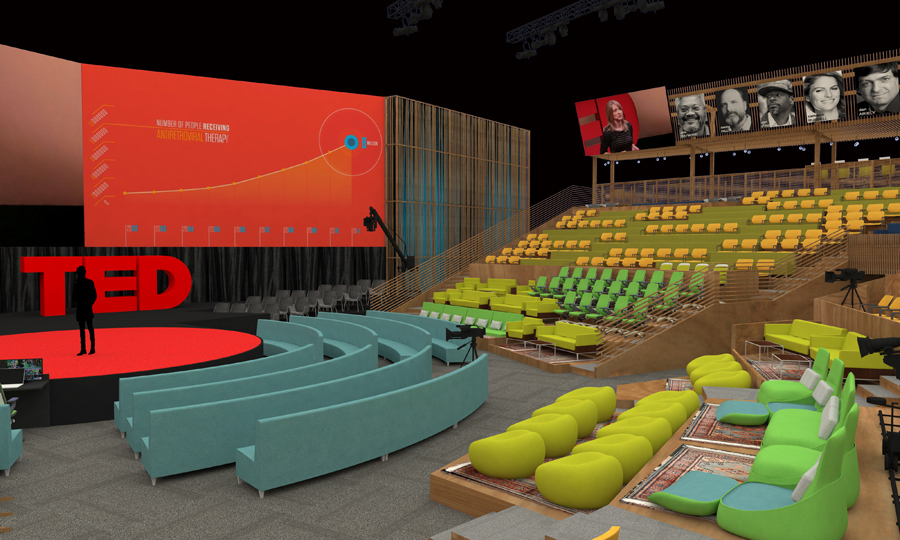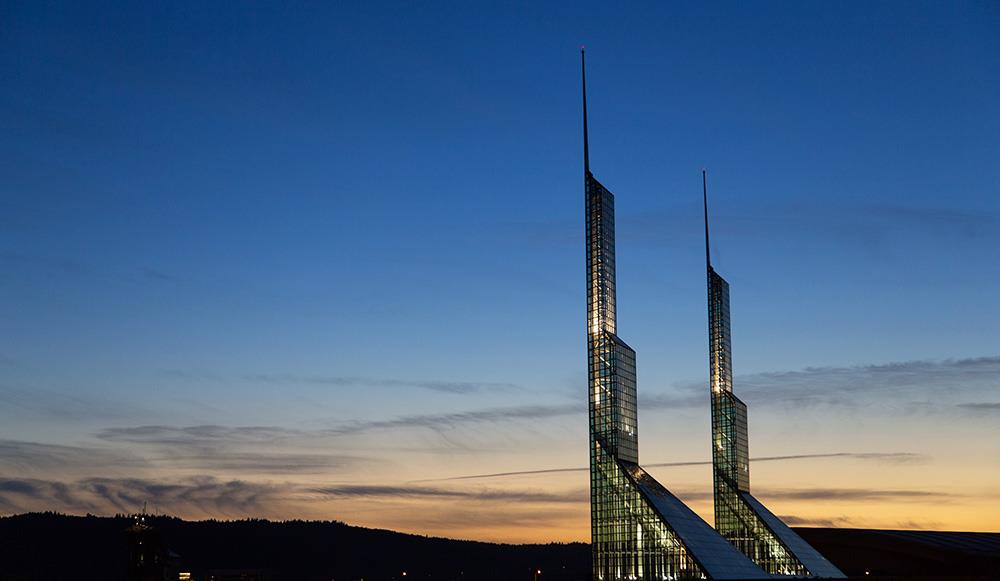Turning Bridges Into Large Venues
Think of the country’s most famous bridges. Now, think about them as venues for concerts, festivals, and other events. That’s what one Pittsburgh councilman has done.
Ed Kress is exploring the possibility of turning into venues the Roberto Clemente, Rachel Carson, and Andy Warhol bridges as a way to generate revenue for Allegheny County. He told Pittsburgh’s Action News 4 that if a bridge is closed for a weekend and used for an event, it could draw attendees from outside the city.
“Kress wants the county to look at what improvements need to be made to the bridge to make it better suited for large events,” reported Bob Hazen for Action News 4. “One obvious upgrade would be electrical outlets. At past events, vendors have had to bring generators. The county would also have to examine liability issues and how much security for the events would cost.”
Kress says that if the bridges can be opened for events, then entrepreneurs can decide the best way to increase revenue on them.
What do you think? Would you like to see an iconic bridge used as a large venue in your city? Please share your thoughts in the comments section.
(photo credit: JC McGreehan via photopin cc)
Lee Esckilsen on Why You Should Attend ISMC
Our International Stadium Management Conference takes place in Atlanta, Georgia, May 7-9. This is a great opportunity for stadium and racetrack managers to meet together, learn from one other, and make new connections.
Over the weeks leading up to the conference, we’ll have many of the presenters and organizers offer their thoughts about the event and why you should attend. This week we feature Lee A. Esckilsen, CFE, CHE, an associate professor at The Center for Sports, Entertainment and Event Management at Johnson & Wales University in Providence, Rhode Island.
 Why do you feel it’s important for managers to attend this conference?
Why do you feel it’s important for managers to attend this conference?
I believe that it is important for stadium managers to attend this conference because it will give them an opportunity to meet with their colleagues face-to-face. It can be lonely at the top, and this will give managers the opportunity to hear and talk about issues that they are confronting as stadium managers on a daily basis and find possible solutions from their peers.
What’s one topic or session that attendees will benefit from and why?
I think that all the sessions will be enjoyable and enlightening. Just as there are many facets to managing a stadium there will be many new and interesting ideas presented at this years ISMC conference.
The Creation of a Temporary TED Theater
TED 2014 started yesterday. The annual talk-fest takes places in Vancouver, British Columbia, this year instead of its regular home in Long Beach, California. Moving the event to a new venue caused it to try something new, namely, building its own 20,000-square-foot theater inside the Vancouver Convention Centre.
“The custom, pop-up theater created by renown New York architect David Rockwell marks an unprecedented foray into designing around the unique experience that is TED, taking into account the needs, desires, and comforts necessary to create the intimate experience TED promises for both speaker and audience,” Shaunacy Ferro wrote for Fast Company. “Most theaters are designed for viewing a two-hour play or a musical performance, an experience that differs vastly from listening to speaker after speaker for days at a time, and one that requires a host of different design considerations.”
Ferro’s article features interviews with Rockwell and TED curator Chris Anderson about the design, seating, and portability of the theater.
“The theater was built nearby in more than 8,000 structural timber pieces created with the help of a computer-aided cutting machine, which arrived at Vancouver Convention Center on 50 trucks,” Kate Torgovnick May wrote on the official TED blog. “The theater was designed as individual “boxes” of approximately 10’ x 12’ x 20’, which fit together for easy assembly. Each individual ‘box’ withstands the dynamic forces imposed when moved and, in total, it’s designed to stand up to the normal live/dead loads in any other building.”
Check out the time-lapse video below to see how the theater was created, and please visit Ferro and May‘s articles for more information about the project.
(Image: TED/Rockwell Group)
Kerry Painter On the Importance of SES for Your Career
The 2014 Senior Executive Symposium (SES) is quickly approaching. It takes place May 12-15 in Ithaca, New York, at Cornell University. In order to learn more about the program and what it offers leaders and future leaders, we spoke with IAVM member and past SES attendee, Kerry Painter, CFE, CEM, assistant general manager at the Cox Business Center in Tulsa, Oklahoma.
 What does SES provide that you do not get anywhere else?
What does SES provide that you do not get anywhere else?
More time to engage in higher level thinking. Classes deep-dive into a subject as opposed to one-hour surface learning. At SES, there is the chance for interaction with brilliant minds that are gathering the best information from the world at large, not just the U.S. or Canada. And, once you leave, those professors are resources for you going forward…not just that one-week period.
Is there a key takeaway that has remained with you from SES?
I was always in awe at the ability of the professors to analyze trends and cross-pollinate our industry with another. About seven years ago, I was in the “future trends” class and the professor talked about how “Toasted sandwiches” are the next big thing. I remember thinking…Really? And then not long after, Subway, Quiznos, etc… all started the toasted sandwich trend along with several other coffee chains and high-end restaurants. Wow, to be able to incorporate that into your concession/food offerings sooner than the rest of our market is to get a jump on impressing clients and gaining revenues.
The classes that analyze your personality leadership styles to such an in-depth level really help you go away and be a stronger leader. If you are aware of your own strengths and weaknesses, then you can better direct others without going in your own biases.
Is there someone that is now a part of your network that SES enabled you to connect with?
I met several industry colleagues in my SES time who are my “go-to” people now. Right off, I think of Leslee Stewart from California, who has served since with me on many things including this year’s new Women in Leadership committee. Karen Totaro, our IAVM 2nd Vice Chair, was also in my class and we talk regularly. Bob Perry (the rock-star professor at SES) is a friend that I have continued to connect and converse with over the years outside of the program. He is an abundant resource for learning opportunities, such as new books and studies.
Applications for the 2014 Senior Executive Symposium (SES) close on March 31. This year’s focus is on leadership culture, and sessions will cover topics such as diversity in the workplace, ethical dimensions of leadership loyalty and brand management, and applied HR strategies. The curriculum is co-developed by IAVM and Cornell University, and it’s geared toward senior-level venue managers and other individuals on leadership tracks.
Oregon Convention Center Now LEED Platinum Certified
This news just came over the press wire (a fancy way of saying it arrived in my email inbox). The Oregon Convention Center has achieved LEED Platinum certification. This makes it only one of two U.S. convention centers to hold that distinction.
“For the Oregon Convention Center to achieve LEED Platinum certification is an extraordinary accomplishment and represents the high value our community places on environmental stewardship,” said Scott Cruickshank, executive director of the Oregon Convention Center. “It’s also a testament to our staff whose years of dedication and commitment toward sustainable practices and responsible building management made this achievement possible.”
Platinum is the highest level a building can receive.
“Although this is major accomplishment, we will continue to explore new and innovative ways that the convention center can further reduce its carbon footprint and continue to be a role model for the entire convention industry,” Cruickshank said.
The Oregon Convention Center will play host to this year’s VenueConnect, July 26-29.
Do you want to receive a Front Row News weekly digest?
Categories
- Allied (861)
- Architecture (147)
- Arenas (747)
- Career (897)
- Convention Centers (895)
- Education (623)
- Events (1,544)
- Food & Beverage (193)
- Foundation (113)
- Guest Experience (1,496)
- Industry News (2,270)
- Leadership (1,888)
- Marketing (150)
- Membership (2,000)
- Music (213)
- Performing Arts Centers (454)
- Professional Development (409)
- Research (127)
- Safety & Security (442)
- Sports (763)
- Stadiums (608)
- Student (159)
- Technology (516)
- Ticketing (92)
- Touring (82)
- Trends (364)
- Uncategorized (756)
- Universities (218)
- Video (25)
- Young Professional (198)
Twitter Feed
- Twitter feed loading
Recent Posts
- Monumental Sports & Entertainment Unveils Phase One Artists for the District Arts Collection, Transforming MSE’s New Arena into a Living Civic Landmark
- Cobb Convention Center Atlanta Reopens After a Major Renovation and Reveals A New Logo
- Orange County Convention Center Announces Appointment of Heather Peeples as Fiscal & Operational Support Manager
- College Park Center and Texas Hall Welcome Kristina Hill to Executive Director Role
- Cincinnati Convention Center Appoints Brian Clark as Assistant General Manager
Categories
- Allied
- Architecture
- Arenas
- Career
- Convention Centers
- Education
- Events
- Food & Beverage
- Foundation
- Guest Experience
- Industry News
- Leadership
- Marketing
- Membership
- Music
- Performing Arts Centers
- Professional Development
- Research
- Safety & Security
- Sports
- Stadiums
- Student
- Technology
- Ticketing
- Touring
- Trends
- Uncategorized
- Universities
- Video
- Young Professional
Archives
- January 2026
- December 2025
- November 2025
- October 2025
- September 2025
- August 2025
- July 2025
- June 2025
- May 2025
- April 2025
- March 2025
- February 2025
- January 2025
- December 2024
- November 2024
- October 2024
- September 2024
- August 2024
- July 2024
- June 2024
- May 2024
- April 2024
- March 2024
- February 2024
- January 2024
- December 2023
- November 2023
- October 2023
- September 2023
- August 2023
- July 2023
- June 2023
- May 2023
- April 2023
- March 2023
- February 2023
- January 2023
- December 2022
- November 2022
- October 2022
- September 2022
- August 2022
- July 2022
- June 2022
- May 2022
- April 2022
- March 2022
- February 2022
- January 2022
- December 2021
- November 2021
- October 2021
- September 2021
- August 2021
- July 2021
- June 2021
- May 2021
- April 2021
- March 2021
- February 2021
- January 2021
- December 2020
- November 2020
- October 2020
- September 2020
- August 2020
- July 2020
- June 2020
- May 2020
- April 2020
- March 2020
- February 2020
- January 2020
- December 2019
- November 2019
- October 2019
- September 2019
- August 2019
- July 2019
- June 2019
- May 2019
- April 2019
- March 2019
- February 2019
- January 2019
- December 2018
- November 2018
- October 2018
- September 2018
- August 2018
- July 2018
- June 2018
- May 2018
- April 2018
- March 2018
- February 2018
- January 2018
- December 2017
- November 2017
- October 2017
- September 2017
- August 2017
- July 2017
- June 2017
- May 2017
- April 2017
- March 2017
- February 2017
- January 2017
- December 2016
- November 2016
- October 2016
- September 2016
- August 2016
- July 2016
- June 2016
- May 2016
- April 2016
- March 2016
- February 2016
- January 2016
- December 2015
- November 2015
- October 2015
- September 2015
- August 2015
- July 2015
- June 2015
- May 2015
- April 2015
- March 2015
- February 2015
- January 2015
- December 2014
- November 2014
- October 2014
- September 2014
- August 2014
- July 2014
- June 2014
- May 2014
- April 2014
- March 2014
- February 2014
- January 2014
- December 2013
- November 2013
- October 2013
- September 2013
- August 2013
- July 2013
- June 2013
- May 2013
- April 2013
- March 2013
- February 2013
- January 2013
- May 2012
- March 2012
- December 2011
- November 2011
- October 2011
Recent Comments
- Frank Bradshaw, Ph.D., CVE on John Meyer, CVE, a Tireless Advocate of Certification for Venue Professionals, Has Died
- Neil Sulkes on Hilary Hartung, Friend to Many in Venue Marketing, Has Left Us
- Jason Parker, CVE on The Devastation of Hurricane Helene and How We Can Support One Another
- Larry Perkins on Touhey Testifies Against Speculative Ticketing Before Congressional Subcommittee
- Peter Secord on Major Players for Planned Elkhart Amphitheater Were in the Mix at VenueConnect





